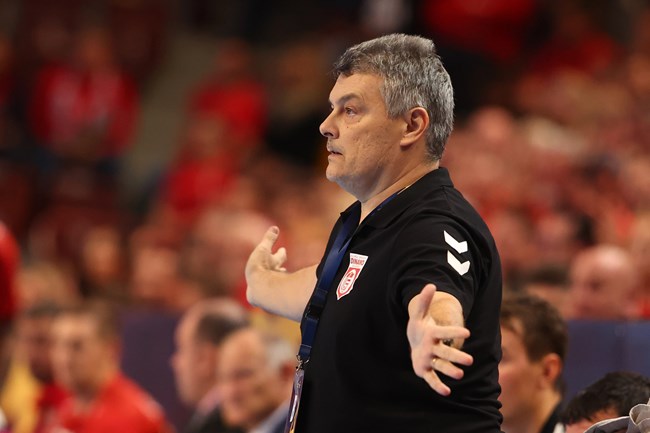They make their start on Thursday in the first EHF EURO Highlight match, against Austria at 18:00 CEST (live on EHFTV).
The fall from grace for the four-time world champions has been well and thoroughly documented, with plenty of coaches trying to stop the rot – from the golden generations of Romanian handball to foreign coaches aiming to instil new life in the team with their expertise.
All the efforts came to nothing and with pressure piling on from fans and from everybody in handball, a new approach was adopted. Basically, it was to put everything in the hands of a single person, albeit a highly qualified one, and wait for the magic to happen.
This is why Xavi Pascual was once again called up as the saviour, after having already served for two years as Romania men’s national team coach between 2016 and 2018.
That time around, Pascual, who won over 60 trophies with Barça, was still at the helm of the Spanish powerhouse. Now, he leads Dinamo Bucuresti, the Romanian champions and should know the Romanian league inside out.
In fact, for his first competitive matches, in the qualification phase of the EHF EURO, 19 of the 21 named players come from the ‘League of Bisons’ – the Romanian league is named after a protected species common in the country.
“We had a little amount of time with him, but he has already tried to transform the team and bring that confidence in us that was lacking. Of course, it will be a long process, but we are confident that we can do better and we can do better, as a matter of fact,” says right back Cristian Ghita, who is one of the most experienced players in the roster.

What went wrong?
With the expansion of the EHF EURO to 24 teams in 2020, it seems unbelievable that Romania, who have been sending a team to the EHF Champions League Men constantly over the past years, have failed to qualify.
But two years ago, they were in the same position, being favourites to qualify in a preliminary group that also featured Sweden, Montenegro and Kosovo. With a good win against Montenegro at home, all Romania needed to do was win against Kosovo twice, take the four points and finally end their drought.
Instead, they took only one point, lost the last match against Montenegro in a total collapse and watched the competition in front of their TV, as they had done in the previous 26 years.
“These are very tough memories, a very tough pill to swallow. What we lacked in those matches was the proper focus, it hurt a lot, failing to win was very, very difficult for us. After the first draw in Kosovo, it looked like we did not know how to play handball anymore,” adds Ghita.
“This is what we have to do to be better, to qualify once again between the top teams in the world, because everybody got better and we went through circles and stayed in the same position. We worked a lot on our focus and keeping a clear mind on the court.”








